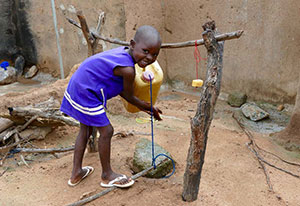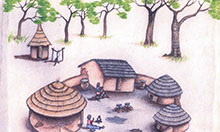
Stunting in children continues to be a public health challenge in Ghana, especially in Northern Ghana. In addition to inadequate dietary intake, poor water, sanitation, and hygiene (WASH) practices are a significant determinant of poor nutritional status. The consequences of poor WASH include diarrhea, environmental enteric dysfunction (EED), and worm infestation. These conditions affect a child’s ability to absorb nutrients from the food they eat, which leads to poor nutritional outcomes. The WASH 1,000 approach, a set of water, sanitation, and hygiene behaviors designed for the 1,000-day child—pregnancy to two years including the pregnant and breastfeeding mother and household—was developed to reduce exposure to contaminants.
Health education and promotion activities can stimulate behavior change. If health promotion activities are participatory, they can generate interest among community members, leading to better understanding, retention, and increased uptake of recommended behaviors.
The WASH 1,000 Photo-Aid depicts a series of behaviors centered on WASH. These behaviors are targeted at 1,000-day households, but the general population can also use them. The photo-aid portrays “appropriate” behaviors and is expected to be used in stimulating discussions between Environmental Health Officers (EHOs) and community members.
The photo-aid can be used for individual counseling, household education, or community-wide education.
To view the document, please download the full job aid and tool above.
